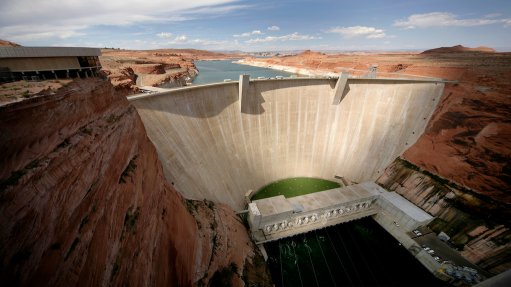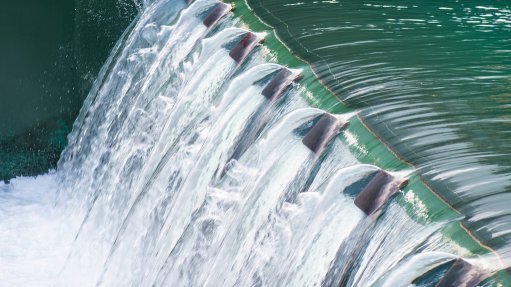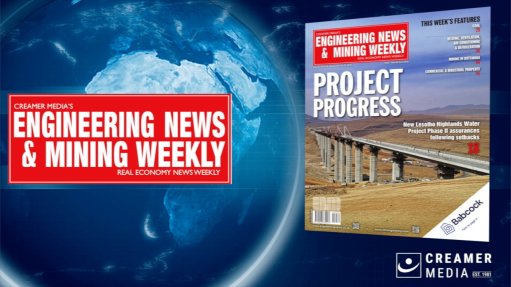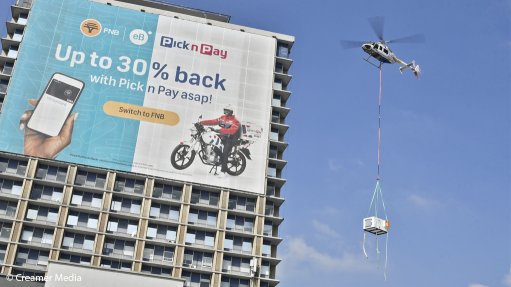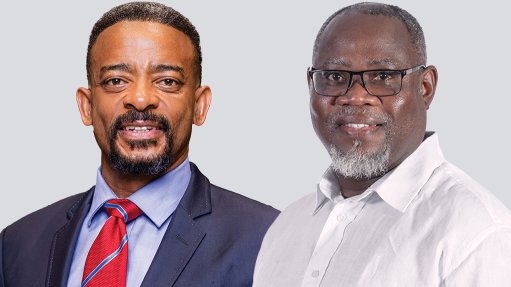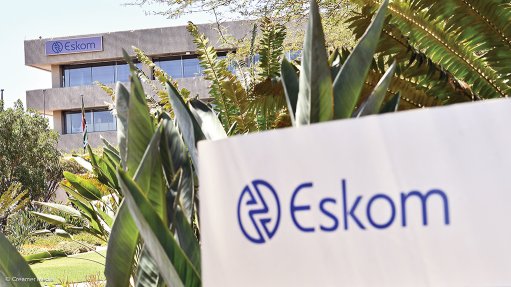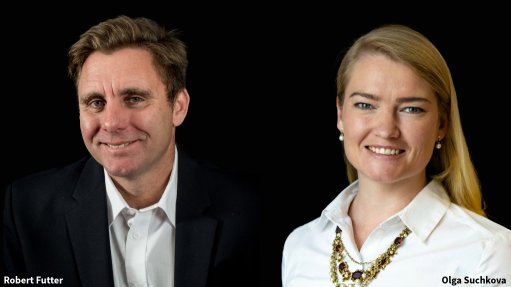Zambia resilient despite challenges

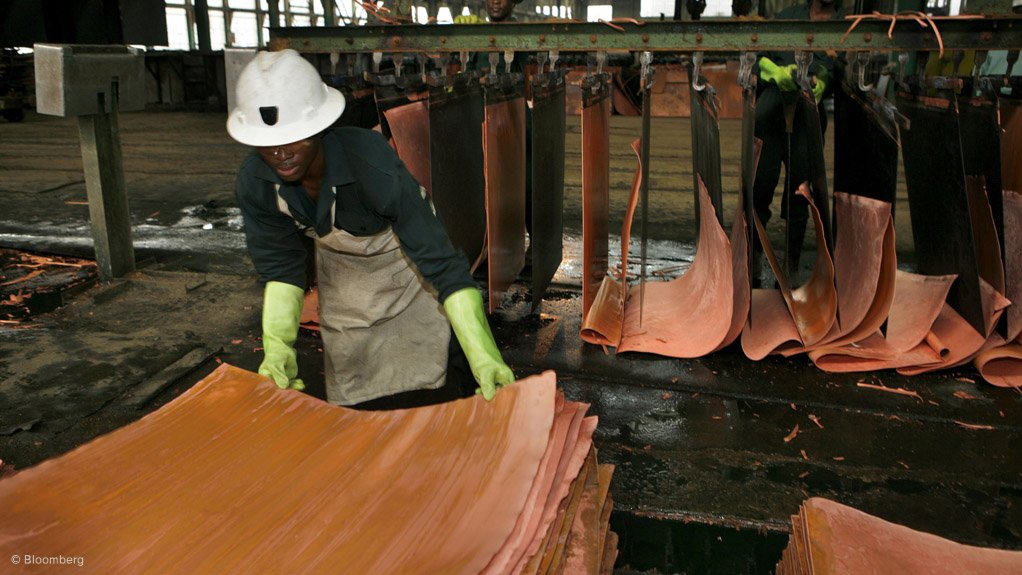
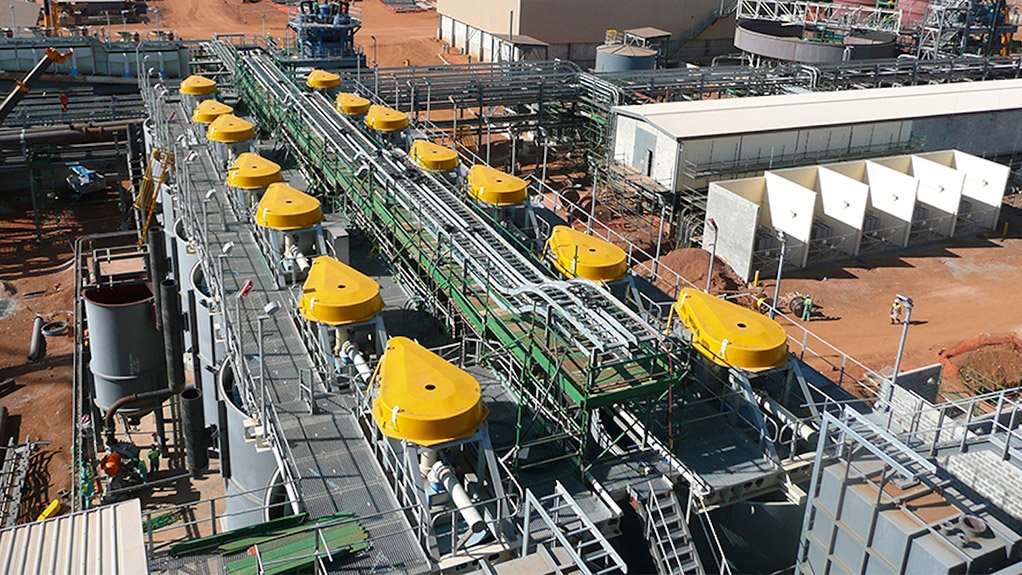
BEYOND COPPER Exploration must be encouraged throughout Zambia – and not just for copper – to ensure the survival of the country’s mining industry
PROTECT AND SERVE Barrick Gold has introduced measures to protect workers and their families living in and around its Lumwana copper mine from the Covid-19 outbreak
The copper-dominant Zambian mining industry is resilient despite the impact of Covid-19, volatile commodity prices, a lack of foreign direct investment and poor, ill-advised government actions, says African Mining Network chairperson Yolanda Torrisi.
Various larger companies, including China Nonferrous Metal Mining (CNMC), Barrick Gold and First Quantum Minerals (FQM), are defying these negative factors to continue operations while assisting with the fight against the Covid-19 pandemic in Zambia, alongside efforts by other mining companies, she explains.
State-owned mineral resources developer CNMC is maintaining steady and normal production – assisted by automated operations, including its digital mine – and is providing suitable personal protective equipment for Zambian students, in China, as well as its staff, in Zambia.
In addition, gold and copper miner Barrick has provided $530 000 for government to support the country’s efforts to combat and contain the pandemic while introducing measures to protect workers and their families living in and around its Lumwana copper mine, in the country’s North-Western province.
Global copper company FQM has also taken appropriate measures; however, the restrictions implemented by South Africa in response to the Covid-19 outbreak have required that the company export its production through alternate means, states Torrisi, highlighting that the Zambian mining industry relies on South Africa for much of its important equipment and commodity exports.
She says those mining companies still operating are helping Zambia’s economy, but it is vital that, for this to continue, all appropriate measures be taken to prevent the spread of the virus.
One of Africa’s largest integrated copper producers, Konkola Copper Mines (KCM), has provided two clinics in Chingola and Chililabombwe, in the Copperbelt province, as holding centres for people who test positive for Covid-19, as well as ZK1.2-million for medical equipment and supplies.
However, Zambia’s dispute with Glencore is an “unfortunate glitch in the country’s efforts to preserve its economy in these unprecedented times”, says Torrisi.
Last month, Glencore announced its intention to place its Mopani Copper Mine on care and maintenance, to which government responded by giving the company seven days to demonstrate why its licence should not be cancelled or revoked.
“Government and the company need to work together to overcome this for the benefit of everyone involved,” stresses Torrisi.
Conversely, base-metal explorer Castillo Copper provides hope for the future, as its early copper exploration has indicated encouraging signs at four different projects near existing mines.
The company is using modern techniques successfully in its exploration of the Copperbelt.
“Field analysis is being undertaken using a portable Innovx X-ray fluorescence analyser and this does not impinge on social distancing measures. This also enables the company to identify anomalous areas in a relatively inexpensive manner, especially when in combination with soil sampling,” says Torrisi.
She notes that technology in all areas of the mining process is also key to future success: “This includes recycling from tailings and waste dumps and accessing deeper orebodies in existing mines.”
Torrisi highlights that KCM is sinking a 1 500-m-deep mine shaft; the deepest new shaft-sinking project in Africa, at its flagship Konkola Deep Mining Project.
Encouragement Essential
Mining is vital to economic development in Zambia and it is promising that government has recognised this with its decision to allow the industry to continue operating during the Covid-19 pandemic, states Torrisi.
“However, the industry needs much more encouragement to develop further so that mining can regain the important place it held in the country a few years back.
“From being one of Africa’s premier mining jurisdictions in 2014, Zambia’s descent has been rapid, and attributed – by policy think tank the Fraser Institute – to corruption and excessive delays, which an industry consultant said were having a negative effect on the industry and on the country’s competitiveness.”
The institute’s 2019 survey shows that Zambia had slipped to 71 out of 76 for investment attractiveness, down from 45 out of 83, which is particularly disappointing considering it was the twenty-fifth most attractive jurisdiction in the world out of 122 in 2014.
Further, in the Policy Perception Index, which measures overall policy attractiveness, Zambia’s score declined by nearly 27 points, reflecting increased concern over regulatory duplication and inconsistencies, an inadequate geological database and security, says the Fraser Institute.
Zambia’s slide emphasises the importance of making persistent efforts to build and sustain a country’s mining industry, says Torrisi.
“Exploration must be encouraged throughout the country – and not just for copper. The only way to ensure the survival of the industry is through exploration, with successful projects translating into further investment, mine development and mining operations.”
This will not only result in further revenue for government through increased royalty payments and tax collection but will also provide important infrastructure for surrounding communities, regions and the country.
Torrisi emphasises that there is no room for corruption or exorbitant resource nationalism in this process; government’s responsibility is to incentivise mining rather than to “grab revenue”.
Notably, more incentives are needed from government to increase the degree of local beneficiation and value-adding to boost employment, government revenue generation, skills and secondary industry growth, she concludes.
Comments
Press Office
Announcements
What's On
Subscribe to improve your user experience...
Option 1 (equivalent of R125 a month):
Receive a weekly copy of Creamer Media's Engineering News & Mining Weekly magazine
(print copy for those in South Africa and e-magazine for those outside of South Africa)
Receive daily email newsletters
Access to full search results
Access archive of magazine back copies
Access to Projects in Progress
Access to ONE Research Report of your choice in PDF format
Option 2 (equivalent of R375 a month):
All benefits from Option 1
PLUS
Access to Creamer Media's Research Channel Africa for ALL Research Reports, in PDF format, on various industrial and mining sectors
including Electricity; Water; Energy Transition; Hydrogen; Roads, Rail and Ports; Coal; Gold; Platinum; Battery Metals; etc.
Already a subscriber?
Forgotten your password?
Receive weekly copy of Creamer Media's Engineering News & Mining Weekly magazine (print copy for those in South Africa and e-magazine for those outside of South Africa)
➕
Recieve daily email newsletters
➕
Access to full search results
➕
Access archive of magazine back copies
➕
Access to Projects in Progress
➕
Access to ONE Research Report of your choice in PDF format
RESEARCH CHANNEL AFRICA
R4500 (equivalent of R375 a month)
SUBSCRIBEAll benefits from Option 1
➕
Access to Creamer Media's Research Channel Africa for ALL Research Reports on various industrial and mining sectors, in PDF format, including on:
Electricity
➕
Water
➕
Energy Transition
➕
Hydrogen
➕
Roads, Rail and Ports
➕
Coal
➕
Gold
➕
Platinum
➕
Battery Metals
➕
etc.
Receive all benefits from Option 1 or Option 2 delivered to numerous people at your company
➕
Multiple User names and Passwords for simultaneous log-ins
➕
Intranet integration access to all in your organisation







